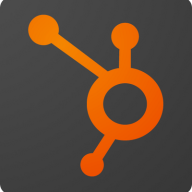

Salesforce Sales Cloud and HubSpot Sales Hub are both designed for businesses needing comprehensive sales management tools. Salesforce often leads in feature depth and customization, while HubSpot is preferred for its simple setup and ease of use.
Features: Salesforce Sales Cloud offers detailed forecasting, opportunity insights, and integration capabilities, making it ideal for large operations needing complex CRM control. HubSpot Sales Hub stands out with its user-friendly design, integrated marketing tools, and task automation, providing efficient CRM solutions for smaller teams.
Room for Improvement: Salesforce could improve by simplifying its setup process, offering lighter versions for smaller businesses, and enhancing user interface intuitiveness. HubSpot might advance by expanding integration options, enhancing analytics features, and adding advanced customization capabilities.
Ease of Deployment and Customer Service: Salesforce Sales Cloud's setup is extensive, benefiting enterprises requiring tailored solutions; its comprehensive support aids in the deployment process. HubSpot Sales Hub, with its quick and straightforward deployment, excels in offering responsive customer support, favoring businesses with limited IT resources.
Pricing and ROI: Salesforce Sales Cloud requires a higher initial investment but promises ROI through its extensive features and scalability, suitable for businesses anticipating growth. HubSpot Sales Hub offers a lower cost of entry with rapid ROI due to its intuitive operation and accessible tools, appealing to budget-conscious entities.
It is more difficult with the language in Portuguese, which complicates understanding other functions.
Salesforce is highly scalable and operates efficiently.
I have not experienced any degradation in Salesforce's performance.
HubSpot Sales Hub could be improved by being more affordable in other countries.
Compared to AWS, it is slower, which could be a hindrance.
The divisions for sales and the graphics are very customizable in HubSpot Sales Hub.
Its easy-to-navigate interface aids in delivering clear vision and organization, especially for sales and business management.


Powerful Sales Software That Grows With You
Track how deals are progressing, organize all sales activity in one place, and accelerate sales cycles to close more deals, faster.
Salesforce Sales Cloud is a comprehensive CRM platform designed for efficient lead management, sales forecasting, and customer engagement, offering extensive customization and cloud-based accessibility.
Aimed at enhancing business efficiency, Salesforce Sales Cloud supports core business processes like CRM, lead and opportunity management, sales forecasting, and customer engagement. Its robust integration capabilities allow seamless connectivity with ERP systems and various applications. The platform offers pipeline tracking, process automation, and advanced sales cycle management. Users appreciate its cloud-based accessibility, allowing teams to operate remotely and manage sales operations effectively. However, users highlight concerns about its complexity, cost, and the need for a more intuitive interface.
What features does Salesforce Sales Cloud offer?Salesforce Sales Cloud is widely implemented across industries such as finance, healthcare, and retail, supporting sales teams in tracking and managing sales operations. Its use extends to reporting, collaboration, and enhancing client interactions, allowing companies to tailor Salesforce to meet industry-specific requirements efficiently.
We monitor all CRM reviews to prevent fraudulent reviews and keep review quality high. We do not post reviews by company employees or direct competitors. We validate each review for authenticity via cross-reference with LinkedIn, and personal follow-up with the reviewer when necessary.